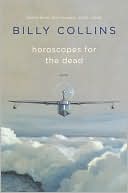 This summer, Judy Moody, her younger brother Stink, and the rest of their family and friends jumped off of the pages of the bestselling novels by Megan McDonald and landed on the big screen in the feature film Judy Moody and the Not Bummer Summer. I hope the movie inspires young moviegoers - both eager and reluctant readers - to check out the source material.
This summer, Judy Moody, her younger brother Stink, and the rest of their family and friends jumped off of the pages of the bestselling novels by Megan McDonald and landed on the big screen in the feature film Judy Moody and the Not Bummer Summer. I hope the movie inspires young moviegoers - both eager and reluctant readers - to check out the source material. Kids, households, libraries, and schools that enjoy the antics of Beverly Cleary's Ramona Quimby or Judy Blume's Peter and Fudge are certain to find the Moody books delightful. The books, illustrated by Peter Reynolds, have a sense of whimsy and spontaneity that kids will relate to while keeping the text clear enough and the chapters short enough to hold their attention.
The series, which began with the simply-titled Judy Moody and cast the spunky girl as the protagonist, has branched off into an additional line of Stink stories which put her little brother in the spotlight. As this is the GuysLitWire blog, I'll put him in the spotlight here today as well.
The Stink books are easier and shorter than Judy's, and they make a great stepping stone between easy-to-read/beginning readers and "real" chapter books. Plus, the Stink books have comic panels between chapters that are drawn by Stink himself! (That's what I tell young readers. The art is really by talented illustrator Peter Reynolds.) There are also books that are Judy & Stink books, giving each of the siblings equal time as (third-person) narrators.
In his first book, Stink: The Incredible Shrinking Kid, he deals with the fact that he's short. Three-foot-eight, to be exact. No, wait -- His most recent height-check marked him at three feet, seven-and-three-quarters inches! Is he shrinking?! In this book, as in those that follow, Stink's concerns are age-appropriate and his antics will make readers giggle. Like his sister, Stink is adventurous and curious. Put these books in the hands of kids who aren't quite old enough to read Diary of a Wimpy Kid but are ready to start checking out chapter books!






 Katherine Tucker Windham, a historian and storyteller, passed way this Sunday. She was known for collecting and preserving southern folklore, especially in her book 13 Alabama Ghosts and Jeffery and its sequels. While most people outside the south have never even heard of Katherine Tucker Windham, I can't imagine what growing up in Alabama would be like without her.
Katherine Tucker Windham, a historian and storyteller, passed way this Sunday. She was known for collecting and preserving southern folklore, especially in her book 13 Alabama Ghosts and Jeffery and its sequels. While most people outside the south have never even heard of Katherine Tucker Windham, I can't imagine what growing up in Alabama would be like without her.  Billy Collins has quite a reputation among U.S. readers of poetry as a somewhat folksy, wry sort of poet. He draws large crowds for his readings. He sells large numbers of his books. And all of it, I submit, is well-merited, since he has the knack, like Robert Frost before him, of speaking his poetic truth - however erudite or deep it happens to be - in such a way that most people can catch at least one meaning of the poem - the surface, at least, whether they choose to look into the depths or not.
Billy Collins has quite a reputation among U.S. readers of poetry as a somewhat folksy, wry sort of poet. He draws large crowds for his readings. He sells large numbers of his books. And all of it, I submit, is well-merited, since he has the knack, like Robert Frost before him, of speaking his poetic truth - however erudite or deep it happens to be - in such a way that most people can catch at least one meaning of the poem - the surface, at least, whether they choose to look into the depths or not.




